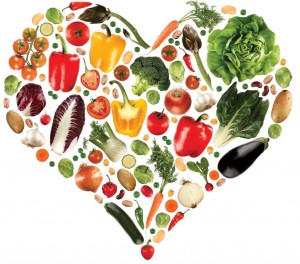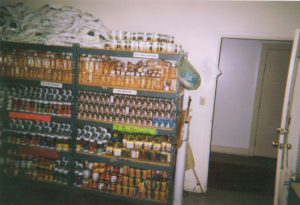Preventing Senior Hunger
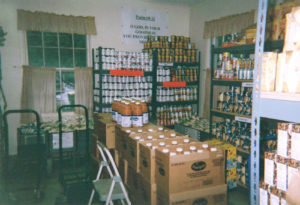
For years, I’ve been blogging and writing books about hunger in America in general and senior hunger specifically.
Senior hunger is not going away anytime soon.
If you read my blog posts, then you are probably interested in senior hunger. Recently I came across a guide which you will want to read.
To learn more about senior hunger, access it here: https://onlinegrad.baylor.edu/resources/seniors-food-insecurity-hunger/
Thanks for reading this article and thanks for your interest and action.
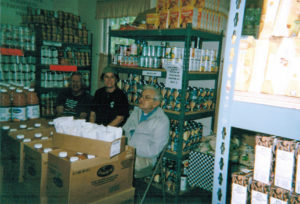
I hope you’ll not only read this article but will also share it wherever you feel it might be appropriate.
This new resource may be of interest to readers everywhere. The goal is to help open a dialogue in our country about senior hunger.
Thank you for your time and thank you for your concern about seniors and hunger.
Thurman Greco


Please share this post with your preferred social media network.
Peanut Butter in the New Year!
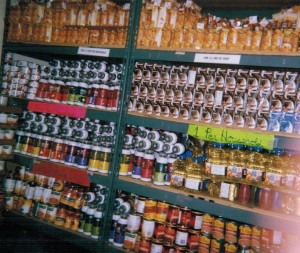
It’s hard, sometimes, for a person to figure out what to donate to a pantry. The supermarket has so many different items on the shelves. What is the best thing to give?
For me, the best food to give to a food pantry is peanut butter. Peanut butter is universally appreciated in a food pantry.
It needs no refrigeration.
It has a long shelf life.
It has no waste.
It is nutritious.
It does not require sophisticated preparation.
No special tools are needed to serve it.
It can be eaten alone or with other foods.
Peanut butter is appropriate with many categories of people: children, adults, seniors, homeless, toothless.
A jar of peanut butter is reasonably priced but it is still a bit expensive for many people.
Peanut is perfect for my needs!
Will you join me? Will you pledge to donate peanut butter to a food pantry.
I’m committing to a jar a week. But, your commitment doesn’t have to be that much. A jar a month will make a significant donation to a food pantry.
Or, even just a jar. Whatever you can give will be enough.
If peanut butter does not resonate with you and your situation, kind thoughts, support, and prayers are always appreciated. Pantries cannot succeed without the backing of the communities where they exist. Your help is necessary to fight hunger.
Thank you for your generosity!
Thank you for reading this post. Please refer to your preferred social media network.
Thurman Greco


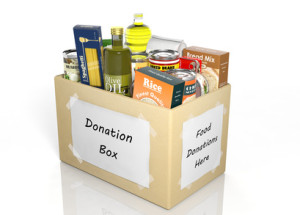
Hunger, our Planet, and the Winter Solstice

On this Winter Solstice please take a moment that fits into your day to focus on our world and how we fit into it.
Visualize a world where all beings know they are connected and live in the comfort of this connection.
Focus on a planet where everyone works together with mutual respect, honor, and harmony.
In your spirit, see a world in which no one goes to bed hungry.
Understand in your heart that hunger and homelessness are not categories. They are situations which can happen to anyone.
Create a vision of peace and food for all.
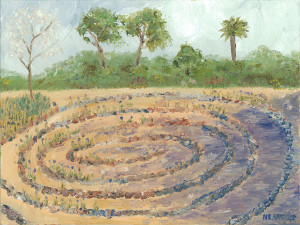
Thank you for reading this article. Please refer it to your preferred social media network.
Thurman Greco


Abundance 1: What Does it Mean to be Hungry?
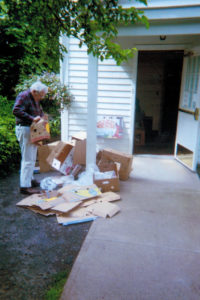
Abundance. What does it mean to be hungry?
For starters, it means you don’t have the money to buy the food you need for the next meal.
For one other thing, it means getting put in a category, or two, or even thirty. And, getting labeled. When the economic downturn began around 2007, new categories and labels appeared weekly, daily even. Journalists, politicians, social workers, sociologists, writers, created new categories as they related stories about hungry and homeless people. Stories about hungry people appeared in new ways and different situations.
The irony: labels created other labels. Simple truths seem endless and obscure the simple realities. Reduced to the lowest common denominator, a person is hungry without enough to eat. And a person is homeless without a roof to sleep under.
Abundance. Examining the label, hungry means missing meals. It means children only eat at school. Life is good when school offers a universal breakfast to all students. Lucy holds in a school with a backpack program so children bring home food on Friday afternoon for something to eat over the weekend.
Being hungry is not a category. It’s a situation. It can happen to anyone.
Hungry people are real. In the food pantry, I saw a person with a life instead of a label. Hunger and homelessness happened in many ways Every hungry or homeless person in the food pantry line has a unique story to tell which is beautiful, spiritually revealing, and heartbreaking. Each story explains what happens to a person when things spin out of control and the world falls apart. Invariably, there is a path to travel.
Questions surface:
“Why do I do what I do?”
“How did I get in this mess?”
“How can I escape?”
“Who will I be in my new life?”
The journey begins, not ends, when things spin out of control, the world falls apart, and the person hits bottom.
Past mistakes lead to a new, better place. It’s a good time to figure out what’s important and what isn’t. It means offloading things you can’t keep anymore.
With nothing left to lost, you have a setup for your new life and opportunity. For some, moving into a job means you pay taxes, rent, maybe buy some clothes, get retrained. This is good for your community, the state and the Fed.
For all the bottoming out, I never saw a person unable to fix the circumstances. Nobody hit bottom and then hung around down there. Everyone seemed to be working toward moving back into someplace or something. As far as I could tell, anyone deciding to commit suicide with a drug overdose or something else left town to end it all. I never saw or heard those stories play out.
Several shoppers died a socially acceptable death by cancer. What is a person to do when the job opportunities evaporate, the house forecloses, the savings spent, Social Security isn’t enough, and the person is too old to start anew.
I questioned the fate of several shoppers in the depths of mental illness. By the time a person was no longer communicating in a language understandable by fellow human beings, life becomes challenging. One young shopper spoke in tweets, whistles, hisses, and other undecipherable sounds. His mother, hidden in the background, did what she could. I always wondered what would happen to him when she died.
This is the heart of the matter because pantries are all about gratitude and abundance. Churches see pantries as an outreach project. Outreach is a popular word. Congregations support feeding the hungry, especially if the money goes to a group of children in Botswana, Somalia, India. The farther away, the better, it seems. When outreach is local things get dicey.
Pantry deniers describe people as freeloaders, homeless people as lazy, and all pantry shoppers as owners of upscale cars.
Whether the car is large, small, old, new, or a broken-down beater even, there’s a larger reality here. Whether the vehicle was driven around or lived in or both, it’s the last vestige of days gone by. By the time a person gets to temporary housing for the homeless, things are reduced to a few clothes, a blanket, hot plate, or maybe an electric skillet or crock pot.
For me, feeding hungry people in a food pantry is an act of gratitude. When volunteers feed hungry people, we own up to the amazing abundance in and around us. We also face our own spiritual hunger. Feeding the hungry in a food pantry addresses the divine hunger issue head-on.
Abundance surrounds both pantry shoppers and volunteers. Many churches and synagogues house a food pantry in a room in the basement. There is absolutely no excuse for anyone in our country to go hungry.
Not everyone recognizes abundance in a pantry. Not everyone recognizes the holiness of hunger. I always know those who see its grace and those who don’t. Those questioning who should be fed and who shouldn’t be fed have trouble with the sacred aspects of hunger.
To be continued…
Thank you for reading this article. Abundance 2 will continue in the next post.
Please refer this article to your preferred social media network.
Thurman Greco

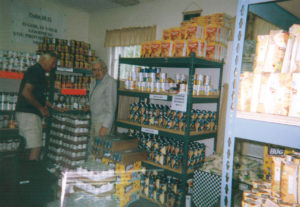

Exploring the Spirituality of Hunger in America – New Beginnings Part 1

Part 1
I began this memoir before I even knew it. On the first day I worked in the basement food pantry, I sat with Mary, a member of St. Gregory’s Episcopal Church and the head of the alter society. We greeted a couple dozen hungry people. Mostly single homeless men, there were a few of Woodstock’s famous colorful characters included in the mix that day.
Throughout my career in the pantry, the most colorful of the colorful was Grandpa Woodstock who liked to bring his bride, Lady Estar into the pantry to shop. The two of them went around the room choosing from peanut butter, cereal, tuna fish, and soup. While this happened, he entertained us gushing enthusiastically.
“My, how beautiful you look today!” I fell for his spiel every pantry day. Those words melted my heart. The most professional of the street actors, he knew how to make us each feel special when he flashed his peace sign and posed for photographs. Grandpa knew how to flash that peace sign, whip out his postcards to sell, and sound off his horn “toot toot”. I sometimes thought he spent a few afternoons posing in front of a mirror to figure out how to get the best response from tourists.
Grandpa Woodstock and Lady Estar were most photogenic with their long, flowing silver hair. Their lovely matching beards only emphasized floral print silk skirts and kimonos. Their toenails were painted matching colors and their Teva sandals matched.
None of Woodstock’s rich and famous got so many requests for autographs and photographs. They simply couldn’t compete with his show off tricks.
After all, Grandpa entertained us all with street theater at its finest. So what if he didn’t mean a word of it? We all enjoyed being sucked into the show!
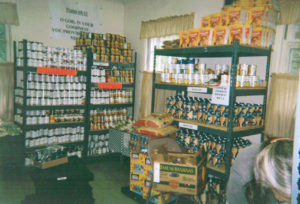
 Thank you for reading this article. Please refer it to your preferred social media network.
Thank you for reading this article. Please refer it to your preferred social media network.
Thurman Greco

Winter Solstice Meditation – December 21, 2018

Find a quiet place where you can feel protected when you begin this Winter Solstice Meditation.
Calm yourself. Center yourself. Begin this Winter Solstice Meditation with a long, slow, breathing pattern as you breathe out negativity, problems, stress and breathe in peace, positive thoughts and beauty.
As you breathe in and breathe out for a few moments, you will become calmer and more grounded.
The Winter Solstice is a turning point of the year, a time of re-birth and a new beginning for all life on Planet Earth. This Winter Solstice turning point brings new energy.
May all life on Planet Earth use our new energy for peace.
May all life on Planet Earth use our new energy to know we are connected and to reclaim our awareness.
May all life on Planet Earth use our new energy to work together to deepen the understanding between every being and the natural world surrounding us.
May all life on Planet Earth use our new energy to foster mutual respect and work together focused on harmony.
May all life on Planet Earth be blessed with abundance and enough food.
May all life on Planet Earth be blessed with appropriate housing and be free from fear.
Sit quietly with this meditation and its energy for a few moments.
When you are ready to end this meditation, move your muscles gently as you return to your surroundings.
You may regain the energy of the re-birth of the Winter Solstice whenever you want.
Thank you for participating in this meditation.
Thurman Greco
Woodstock, New York

Please refer this article to your preferred social media network.
Please share this meditation with everyone you know.
Motel 19
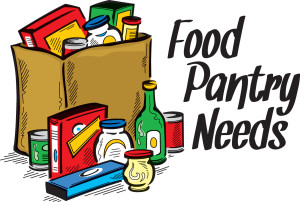
Everyone coming to a pantry travels down a path. For many, this journey is a real load lightener. As the finances erode, the house goes. And, of course, when the house goes, everything that was in it goes too.
Furniture, kitchen stuff, toys, clothes, tools, garden implements. By the time a person or family gets to Motel 19, things have slimmed down to a few clothes, a blanket or two, a hot plate, or maybe an electric skillet or microwave.
For the families living in Model 19, the children are usually eligible for the school breakfast and/or lunch program. But, that doesn’t cover eating at home. And, there’s no lunch program for the adults.
So…it’s off to the pantry.
Several families usually pile in a car and come over for an afternoon of pantry shopping. Or, an individual hitch hikes. In order for this trip to succeed, several guidelines to follow will help:
Try to arrive an hour or so before the pantry opens. This makes for a long wait but there’s more of a selection right when the pantry opens. Also, while waiting in line, there’s an opportunity to make new friends and learn a few survival skills if you’re new to the pantry experience.
Bring your own shopping bags. Some pantries don’t have enough of these much needed items.
Bring some ID. Some pantries require much: picture ID, proof of address, proof that other household members exist. This can be a bit tough if you’re homeless. Hint: some pantries require little to no identification
Be prepared to wait in a line. Use this time to meet your line neighbors. They can be helpful if you’re trying to navigate your way through DSS, if you’re being foreclosed upon, need your car repaired, etc.
As you wait in line, try to learn how the pantry works from those around you in the line. You’ll want to know how long you’ll be in the shopping room, what foods are usually on the shelves, what other pantries the people in line shop at, etc.
Don’t be afraid to let people know you’ve never been to a pantry.
Once you find a pantry you can use, go every time you’re allowed. If you’re lucky, you’ll have a pantry in your area which will allow weekly visits. Because pantry shopping takes so much time, shoppers sometimes just don’t go if they still have SNAP card money or if they have a few bucks left over from a paycheck. Your best bet is to go every week.
Why? Most pantries have different food every week and you may miss out on some real savings by not attending regularly.
Pantry shopping requires a totally new approach to cooking. So does cooking with only an electric skillet or microwave.
Some pantries have periodic visits from a nutritionist. Don’t be shy about asking him/her for any tips you might need to help this adjustment a bit easier for you. Nutritionists know a lot about the food you are now trying to cook with and they can answer any questions you might have.
Thanks for reading this blog post.
Please share this article with your favorite social media network.

PS: This book is at the publisher’s now. It will be available SOON! You can order it at http://www.thurmangreco.com.
Thanks,
Thurman Greco
Help the Homeless
The world of people who are homeless may seem very foreign – But, it’s actually very near. We meet people every day who are just like us, only they don’t have a roof over their heads.
We can all find ourselves without a roof when we lose a job. Or, maybe a spouse dies. Possibly an accident which leaves physical disabilities is the cause. In short, all it takes is a personal tragedy.
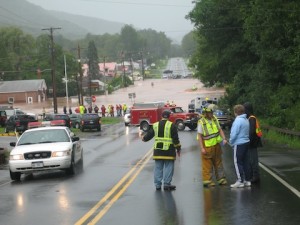 There are many things we can do to help end homelessness. There are many, many things we can do to help those who are struggling with homelessness.
There are many things we can do to help end homelessness. There are many, many things we can do to help those who are struggling with homelessness.
One easy way we can help is to take a little extra food along when we go out of our home to work or on errands. A few extra sandwiches will help. When a person asks for change, offer him or her a sandwich.
A couple of times each year, gather the clothes you are no longer going to wear and donate them to shelters and pantries providing services to help those who are homeless.
While you gather clothes for the homeless, look at your family’s toys, books, and games and select those that are no longer being used. Children living in shelters have few possessions and will enjoy them.
Can you spare an hour or two? Tutors can make all the difference. Volunteer to tutor children in shelters.
Celebrate your birthday or anniversary and ask the people you invite to bring items for the homeless.
Carry fast food certificates with you when you are going out. Hand them out to people who are homeless.
Hold a food drive and take the food to a shelter or a pantry in your area.
Donate your collectable recyclable cans and bottles to people who are homeless. Donate a bag of groceries to a soup kitchen, shelter, or food pantry.
Volunteer at a food pantry or shelter.
Volunteer your professional services. Lawyers, doctors, psychiatrists, counselors, and dentists can all use your skills when you volunteer at a pantry or shelter.
Ask your company, church, school to host a fund-raising event for a pantry or homeless shelter. Items of dignity are really needed by the homeless.
 Thank you for reading this article!
Thank you for reading this article!
Please refer this article to your favorite social media network.
Thurman Greco
PS: The hunger book is really moving along. Things just never get finished as quickly as we all wish. Writing a book requires years and years of research and writing. In writing the hunger book, I have gone through thousands and thousands of sheets of paper and three computers. I have spent years and years getting this story moved from an event in my life to a book which will attract you or not in less than two minutes.
Whew!


